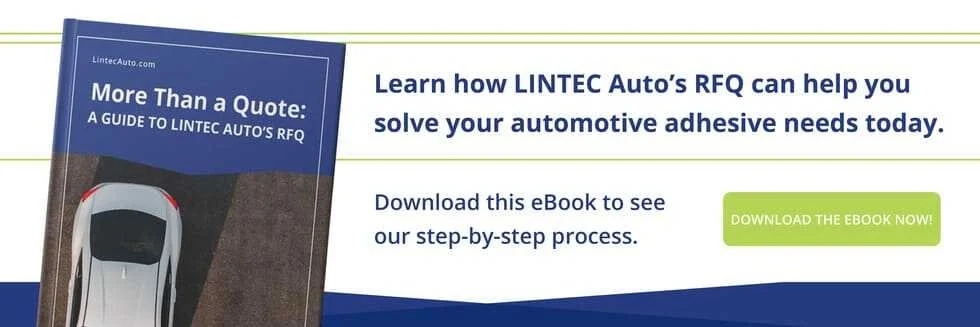How Pressure-Sensitive Tapes Save Time, Cut Costs, & Boost Auto Sales

There are three primary areas where you can create value in automotive manufacturing:
- Cost-effective components
- Streamlined manufacturing processes
- Competitive end-product
In other words, youve got a winning model whencompared to the averageinitial material costs are lower, assembly is faster, and the product outperforms its competition. Pressure-sensitive tapes provide relief in all 3 areas of automotive production, which makes them a no brainer in the pursuit to cut costs, save time, and boost sales.
Cut the Cost of Materials, Shipping, Tools & Space
There are more costs involved than simply the components themselves, of course. But pressure-sensitive tapes are cheaper and lighter than heavy metal fasteners (which saves on both per unit and shipping costs).
Furthermore, with fewer tools needed for installation, they lower your equipment and maintenance costs. Everywhere you can eliminate the need for drills and torque tools; you reduce the stress on the life of those tools (or even keep fewer on the premises).
Since some pressure-sensitive tapes (like blackout tape) eliminate painting processes, you can also cut down on the total production space required for your components. No painting means no separate, ventilated rooms for paint processes.
Pressure-Sensitive Tapes Also Save Time
Efficiencies on the assembly line can accelerate production times and boost total outputs. Faster production, of course increases profits.
Consider that with pressure-sensitive tapes, youll experience:
- Fewer steps compared to drilling and screwing mechanical fasteners
- Less mess to clean up than liquid fasteners like epoxies
- Quick adhesion with virtually no curing time compared to liquid adhesives
- The ability to die-cut the tapes in advance for the perfect fit, right away
The line moves rapidly when there are fewer tools needed, less calibration, and very little wait time for the bonds to set. This can work for structural bonds, but also for decorative areas like trim and door sashes.
Automotive Tapes Crank Up Performance (and Sales)
Faster and cheaper doesnt automatically mean better, but automotive pressure-sensitive tapes have advanced a long way beyond early tape adhesives. Today, these tapes can maintain the same level of performance as mechanical fasteners, or even outperform them.
Where screws can corrode, loosen, and rattle or release over time, the adhesives in the strongest bonding tapes will endure even longer than the service life of the vehicle. Automotive tapes are a reliable and resilient adhesive solution even on high-impact exterior panels or in the harsh environment of the engine bay.
On top of being world-class adhesive agents, pressure-sensitive tapes also:
- Aid in lightweighting, which increases fuel efficiency and helps the car meet regulatory compliance
- Improve NVH ratings, either by cushioning adhered substrates (as with automotive foam tapes) or by boosting the structural rigidity of the vehicle (by consistently bonding the full contact surface between two components, unlike intermittent punctures with bolts or screws)
When performance is high and costs are low, the componentsand the eventual vehicle theyll composehave room for competitive, profitable pricing. OEM suppliers can pass these lean automotive manufacturing gains on to parts OEMs, who pass them forward to automakers and eventually, consumer wallets.
Adding value to OEM price is one of the hallmarks of cost-effective suppliers. Automotive pressure-sensitive tapes are a straightforward way to add value and simplify production at the same time.

